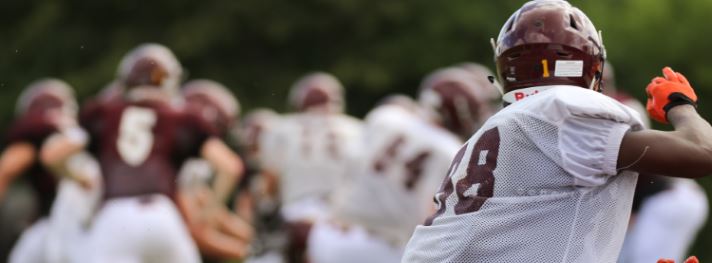Experiencing a traumatic brain injury like a concussion can be life altering. It can affect many parts of the body including the eyes. Our visual system is extremely complex and connected to the brain. A head injury can disrupt a person’s ability to see clearly and function day to day. So it’s important to know what to be aware of in this situation and seek professional help sooner than later. This week’s article will focus on concussions and what visual symptoms you should be aware of following this type of traumatic brain injury.
What Is A Concussion
The Centers for Disease Control and Prevention (CDC) website defines a concussion as:
“…bump, blow, or jolt to the head or by a hit to the body that causes the head and brain to move rapidly back and forth. This sudden movement can cause the brain to bounce around or twist in the skull, creating chemical changes in the brain and sometimes stretching and damaging brain cells.”
Check out this animated video of “What Is A Concussion” from the CDC website.
When we look at how the visual system is affected by a concussion it is important to understand how our eyes work with the brain to see. The retina, which is a structure in the eye, translates light signals into electric impulses. These travel down the optic nerve, which is connected to the brain. The brain then receives these signals and makes out an image. In essence, without our brains, we would not be able to see. In the case of a someone experiencing a concussion, it is easy to see how the visual system may be affected as the two function together.
Visual Symptoms Following A Concussion:
A traumatic brain injury like a concussion will differ from person to person. It is dependent on the degree of the injury and how it occurred. This means symptoms may vary from mild, moderate, or severe. If you experience any of the following visual symptoms it is important to seek medical help from an optometrist who can refer you to the appropriate specialist or vision therapy clinic:
- Blindness
- Double vision
- Trouble with eye tracking
- Blurry vision
- Trouble focusing on objects at near of far distances
- Sensitivity to light
- Reduced visual field
- Trouble reading print
This list is not exhaustive as it only lists common visual symptoms after a concussion has occurred. However other symptoms like dizziness or vomiting may occur following a concussion. If you have suffered a concussion or think you have, it is strongly advised that you seek medical attention. It is also important for family members and loved ones to know how to recognize symptoms as the person who has suffered the traumatic brain injury may not have the best judgment. Stepping in on behalf of the injured person could save their life.
Vision Therapy
If you have suffered a concussion and are experiencing lingering effects you may be suffering from post concussion syndrome. This term categorizes patients who are still suffering from symptoms weeks or months later, sometimes for even longer periods of time. When visual symptoms are persistent glasses, contact lenses, or vision therapy may be required to achieve eye functionality.
Vision therapy aims to help patients use their eyes in a functional and optimal way by retraining the visual system. Patients will be assessed and a tailored treatment plan will be recommended. The Concussion Project website gives a good example of what rehabilitation may mean for someone with post concussion syndrome:
“Neuro-Optometric Rehabilitation represents a specific area of optometry, which addresses deficits in eye-teaming, focusing, visual tracking, visual processing problems, and related visual problems. These problems are common with patients who have concussion and other forms of acquired brain injury. Treatment involves spectacle lens prescriptions, prisms, filters, and special tints which can provide symptomatic relief.”
Don’t Delay
The biggest takeaway I hope readers gain from this article is to not delay seeing a professional. This ultimately delays treatment and can reduce your quality of life. There are many successful treatment plans for those suffering from visual symptoms due to a traumatic brain injury. At Inner Harbour Optometry we can help assess your needs and determine what the next steps in your recovery will be.
Do you need a trusted local Victoria, BC family eye doctor? Look no further. Give us a call or book online with Dr. Sharma.
We love helping our patients see their very best!
